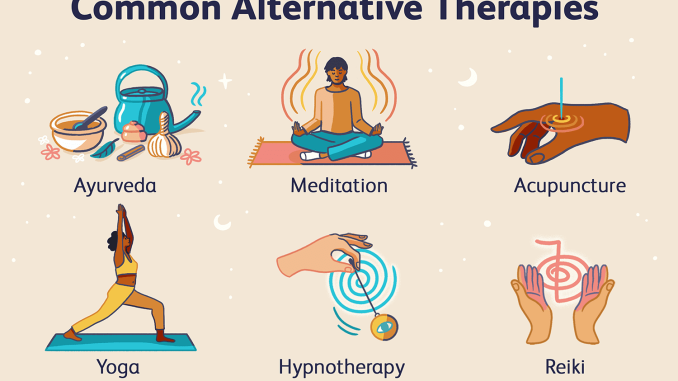
Alternative medicine and therapies, often referred to as complementary or integrative medicine, encompass a wide range of non-conventional healing practices and approaches. These practices can offer both benefits and risks, and it’s essential to understand and evaluate them carefully. Here, we’ll explore the advantages and disadvantages of alternative medicine and therapies.
Benefits of Alternative Medicine and Therapies:
1. Holistic Approach:
Many alternative therapies emphasize a holistic approach to health, focusing on the physical, emotional, and spiritual aspects of well-being. This approach can lead to a more comprehensive understanding of health and healing.
2. Natural and Non-Invasive:
Alternative therapies often use natural remedies and non-invasive techniques. This can be appealing to individuals who prefer treatments with fewer side effects and risks.
3. Personalized Care:
Alternative therapies often provide personalized care. Practitioners take the time to understand a patient’s unique needs and circumstances, tailoring treatments accordingly.
4. Emphasis on Prevention:
Many alternative approaches place a strong emphasis on prevention, which can lead to healthier lifestyles and reduced risk of chronic diseases.
5. Patient Empowerment:
Alternative therapies empower individuals to take an active role in their health. Patients often play a significant part in decision-making and self-care.
6. Complementary to Conventional Medicine:
In many cases, alternative therapies can complement conventional medical treatments. They can be used alongside mainstream medicine to enhance the overall quality of care.
7. Cultural and Personal Beliefs:
Alternative medicine and therapies may align with cultural and personal beliefs about health and healing. They can be a valuable option for individuals seeking treatments in harmony with their values.
Risks of Alternative Medicine and Therapies:
1. Lack of Scientific Evidence:
Many alternative therapies lack rigorous scientific evidence to support their effectiveness. This makes it difficult to determine which treatments are genuinely beneficial.
2. Delayed or Missed Diagnosis:
Relying solely on alternative treatments may delay or miss the diagnosis and treatment of serious medical conditions. It’s crucial to use alternative therapies as a complement to, not a replacement for, conventional medical care.
3. Unsafe Practices:
Some alternative therapies can involve unsafe or unproven practices that may harm patients. For instance, unregulated herbal remedies may contain harmful substances.
4. Costs and Financial Burden:
Alternative therapies can be costly, and insurance coverage may not extend to these treatments. This can lead to a financial burden for patients.
5. Resistance to Conventional Medicine:
Some individuals may opt for alternative therapies to the exclusion of conventional medicine, potentially putting their health at risk. It’s important to balance both approaches for the best outcomes.
6. Unqualified Practitioners:
Not all practitioners of alternative therapies have the necessary qualifications or expertise. This can lead to ineffective or potentially dangerous treatments.
7. Placebo Effect:
In some cases, the perceived benefits of alternative therapies may be due to the placebo effect. While placebos can have a positive impact, they do not address the underlying medical condition.
8. Interactions and Contradictions:
Alternative therapies may interact with conventional medications or contradict medical advice. It’s essential for patients to disclose all treatments they are receiving to healthcare providers.
Conclusion:
The benefits and risks of alternative medicine and therapies are diverse, and the decision to explore these treatments should be made thoughtfully. It’s advisable to work in partnership with a qualified healthcare provider who can help assess the suitability of alternative therapies for your specific health needs. Integrative medicine, which combines conventional and alternative treatments, may offer the best of both worlds, providing comprehensive care that addresses your physical, emotional, and spiritual well-being while ensuring the highest level of safety and effectiveness. Always prioritize evidence-based treatments and consult with healthcare professionals to make informed decisions about your health and well-being.
Leave a Reply